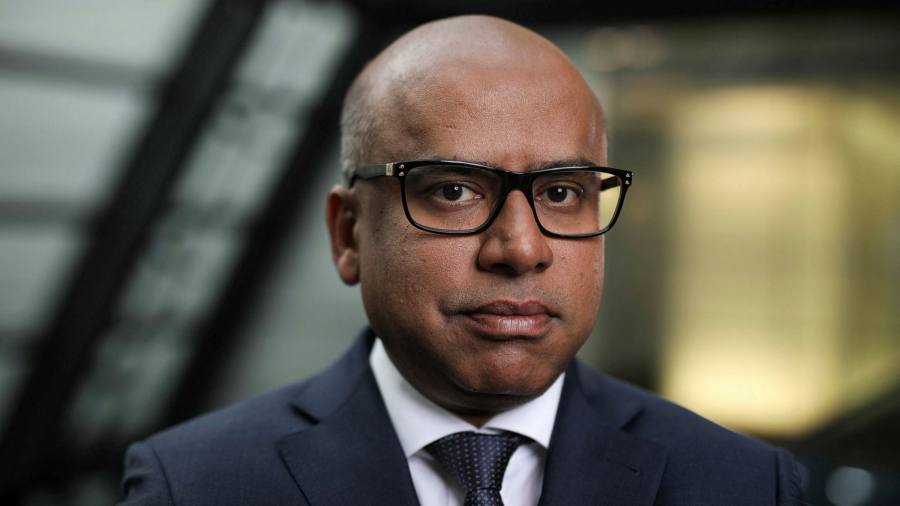The UK government has withdrawn guarantees on £400mn of loans Greensill Capital made to companies linked to Sanjeev Gupta, the metals magnate whose business empire is under criminal investigation for suspected fraud and money laundering.
In a letter published on Monday, the British Business Bank — the state-owned lender that administered many of the UK’s emergency coronavirus virus lending schemes — said that guarantees backing Greensill’s loans to large businesses had been “terminated” following an investigation into its lending practices.
The British Business Bank first announced last year that it had temporarily suspended the guarantees on these loans, pending an investigation into the once-hyped lending start-up’s compliance with the terms of the scheme. The letter to the House of Commons’ influential public accounts committee confirms that Kwasi Kwarteng, business secretary, accepted its recommendation to terminate the guarantees permanently in April.
Greensill’s collapse sparked a political scandal last year, which largely focused on its abuse of lending schemes set up to help companies weather the pandemic. Former UK prime minister David Cameron, who earned millions of pounds as an adviser to Greensill, became embroiled in the affair after his extensive lobbying on behalf of the firm came under scrutiny.
In 2020, Greensill lent £400mn under the Coronavirus Large Business Interruption Loan Scheme (CLBILS), which benefited from an 80 per cent government guarantee. All of these loans were extended to companies either owned by — or connected to — Gupta. The public accounts committee later said that this practice appeared to “flagrantly contravene” a £50mn cap on loans Greensill could make to a single company.
The British Business Bank told the FT that the connected nature of the borrowers was “not the sole” reason for withdrawing the guarantees.
“There were a number of breaches that prompted our decision,” the bank added.
Administrators for Greensill declined to comment.
The FT first revealed in October 2020 that multiple entities linked to Gupta were receiving government-backed loans through Greensill. Last year the FT reported that the metals magnate carved up his business empire to further maximise the amount of UK taxpayer-backed loans it could draw, under a plan his company dubbed a “CLBIL Restructuring”.
The withdrawal of the guarantees is likely to shift losses on to small towns in Germany, which held deposits in a Bremen-based banking subsidiary of Greensill that made the loans. The administrator of Greensill Bank may therefore look to challenge the termination of the UK government backstop in order to increase recoveries for depositors.
“Whether other parties are unhappy with the outcome and may wish to dispute it is obviously up to them, but we feel that we’ve acted appropriately and lawfully and looked at the evidence carefully and reached a conclusion,” the British Business Bank said.
Germany’s financial watchdog has filed a criminal complaint against Greensill Bank’s management for suspected balance sheet manipulation, citing its lending to Gupta’s GFG Alliance as an area of concern. The CLBILS loans are also under scrutiny from the UK’s Serious Fraud Office, which last year announced it was probing GFG and its “financing arrangements with Greensill Capital”.
The British Business Bank declined to comment on whether it had shared its findings with other authorities investigating the matter.
In 2020, Sanjeev Gupta wrote to Nadhim Zahawi — then a government minister in the business department and now chancellor of the exchequer — thanking him for his “personally instrumental” role in facilitating the taxpayer-backed loans. A spokesperson for Zahawi has previously dismissed this as “flattery” in an “overwritten letter”.
On top of the £400mn loans under the CLBILS programme, the British Business Bank is also investigating £15mn of loans Greensill made under a scheme for smaller businesses. The state-backed lender is yet to make a decision on whether to suspend the guarantees on these facilities, which include a loan to a neighbour of the firm’s founder Lex Greensill.





















Discussion about this post